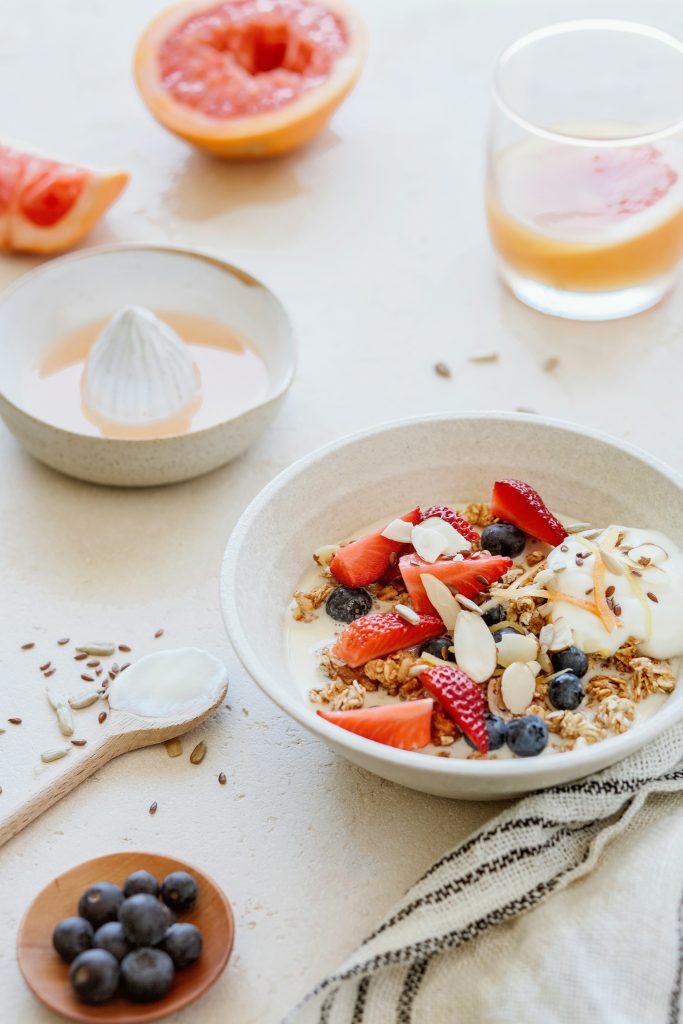This post contains affiliate links. Click here to read my affiliate policy.
Last Updated on April 11, 2024

Protein is an essential macronutrient that plays a vital role in building muscle, supporting weight loss, and keeping you feeling full and satisfied. Getting enough high-quality protein in your diet has numerous benefits for your health and fitness goals. While there are many protein supplements available, you can easily boost your daily protein intake through whole foods. Read on for 10 delicious and effective ways to increase your protein consumption.
Lean Meat
Lean cuts of beef, pork, chicken, and other meats are excellent sources of complete, high-quality protein. Aim for a palm-sized portion at each meal. Grilled, baked, or roasted preparations are healthiest. Try topping a salad with grilled chicken or slicing lean steak for stir-fries.
Eggs
Eggs provide the perfect protein package. They contain all 9 essential amino acids that your body needs but cannot produce on its own. Eggs are very versatile and can be prepared in many different ways. Hard boil a batch to keep on hand for snacks or whip up a veggie omelet for breakfast.
Greek Yogurt
Plain Greek yogurt packs up to twice as much protein as regular yogurt. It makes a great base for smoothies and parfaits. Mix in fresh fruit, nuts, and seeds for extra nutrition and crunch. Greek yogurt can also be used in dips, dressings, and baked goods.
Cottage Cheese
Cottage cheese provides an impressive 14 grams of protein per half cup serving. It has a mild flavor and soft texture making it ideal for topping salads or eating as-is. Mix in berries, honey, cinnamon, or other ingredients to liven it up.
Edamame
Edamame, or boiled soybeans, make for a satisfying plant-based protein source. They can be found fresh or frozen and prepared simply by steaming or boiling. Sprinkle with sea salt and eat as a snack, add to salads and rice bowls, or blend into dips and spreads.
Lentils and Beans
From black beans to chickpeas to kidney beans, lentils and all types of beans are great vegetarian protein sources. They are economical, versatile, and easy to prepare. Enjoy beans in soups, salads, burritos, chili and more. Canned varieties are just as nutritious as dried ones.
Tofu and Tempeh
For a vegan protein option, try tofu and tempeh. Tofu takes on the flavor of sauces and seasonings easily. It can be pan-fried, baked, or added to smoothies. Tempeh has a heartier texture with an earthy taste. It makes a great meat substitute in dishes like stir-fries, tacos, and sandwiches.
Milk
Milk is not just for kids. One cup of cow’s milk provides 8 grams of protein. Almond milk and soy milk are great plant-based options with around 7 to 8 grams per cup. Enjoy a glass with meals or use milk and non-dairy alternatives in smoothies and shakes.
Protein Powders
Protein powders like whey and pea protein offer an easy and convenient way to increase your daily protein intake. Certain protein powders allow you to gain serious mass fast. Mix into juices, smoothies, oatmeal, yogurt, and baked goods. Choose a high-quality powder that fits your dietary needs.
Nuts and Nut Butters
Nuts and nut butters are protein powerhouses. An ounce of almonds or walnuts contains 6 grams of protein. Nut butters like peanut, almond, and cashew butter provide 4 to 8 grams per serving. Enjoy nuts as on-the-go snacks and spread nut butters on whole grain toast or add to oatmeal.
There are endless healthy and delicious options for incorporating more protein into your eating plan. Focus on getting at least 20 to 30 grams of protein per meal to reap the benefits. Mix and match whole food sources like meat, dairy, eggs, beans, nuts, and high-protein grains such as quinoa. Supplement with protein powders as needed to meet your daily protein goals. With a little creativity and planning, you can easily give your protein intake a boost.

